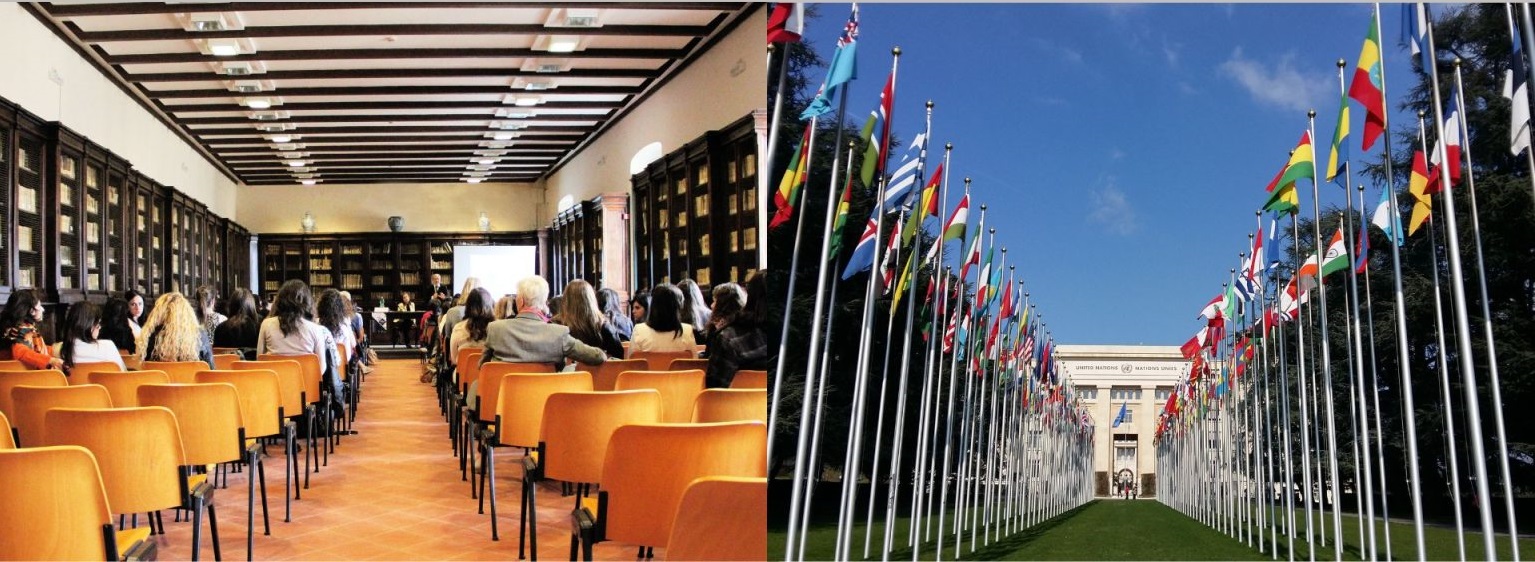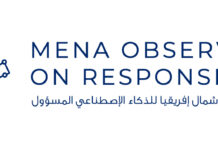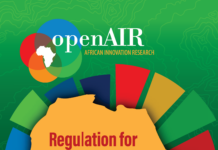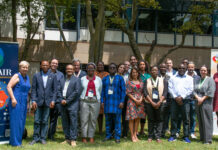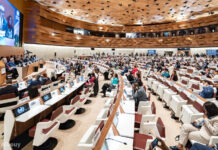Buoyed by the July 2022 WIPO 62nd General Assembly decision that endorsed a Diplomatic Conference on Genetic Resources (GR) and Associated Traditional Knowledge, delegates to the 45th Intergovernmental Committee (IGC) continued negotiations on the TK and TCEs texts. On December 5-9, 2022, negotiations on the two subject matters continued from the September 12-16, 2022 44th IGC. It is second of the series of negotiations to focus on TK/TCEs. At the 44th IGC, delegates took unofficial notice of the new Chair’s, Ms. Lillyclair Bellamy (Jamaica), determination to take a cue from the immediate past Chair, Ian Goss (Australia) to generate a Chair’s TK/TCE text to advance progress on TK/TCE negotiations. This decision, which did not come as surprise to delegates, has potential to replicate Goss’ experience of the Chair’s GR text based on which the 2024 Diplomatic Conference is being convened.
The resort to Chair’s text is an act of frustration and pragmatism. Frustration, because over the course of their negotiations, delegates from demandeur and non-demandeur nations have shown a proclivity to stick to their well-worn positions, thereby failing to narrow gaps as required by their mandates. Indeed, the substantive GR text was full of brackets and multiple alternatives in virtually all articles, making it so that it provided no viable pathway to a Diplomatic Conference. The same is also true to some degree regarding the TK/TCE texts.
Pragmatism, because with confidence-building and intense engagements with key delegates and experts, the Chair takes the bull by the horn, as the saying goes, narrowing gaps to generate a Chair’s text that finds some middle grounds around which compromise may be forged. A Chair’s text is a pragmatic strategy to break deadlocks and advance the Committee’s work. Yet the Chair’s text remains for the most part a non-paper and can only evolve into the negotiating process to the degree delegates are able to support and recognize it. Consequently, at all times, the substantive negotiation texts – in their cumbersome bracketed and multiple alternative renditions – remain the official negotiation instruments.
The recently concluded WIPO IGC 45 was preceded by the meeting of the Ad Hoc Expert Group on TK and TCEs on December 4, 2022. The decision to set up the group was struck at the 44th session. This Group of experts were selected strictly in their personal capacities. It comprised Indigenous Peoples, regional interests, industry representatives, etc. The Group was mandated to explore lingering “specific legal, policy or technical issues” and report to the plenary to advance IGC 45 negotiations. The issues explored by the experts were: “scope of protection, exceptions and limitations, sanctions and remedies”. The two co-Chairs, Ms. Edwina Lewis (Australia) and Mr. Anthony Kakooza (Uganda), presented the report of the Ad Hoc Expert Group deliberations at the first plenary to foreground deliberations at the 45th session.
In addition to the Ad Hoc Expert Group, the IGC 45 sessions used contact groups meetings that focus on specific issues as a strategy for narrowing gaps while the plenary remained the decision-making body. The 45 sessions had an active contact group deliberations that focused on exploring who are the beneficiaries of TK/TCEs instruments and the role of nation states and other entities regarding TK/TCEs. It also explored the intersections of Indigenous Peoples and Local Communities in the context of rights and interests that are engaged in the TK/TCEs with reference to United Nations Declaration on Rights Indigenous Peoples (UNDRIPs).
One of the major highlights of the 45th session of the IGC is the “official” acknowledgement of the Chair’s Draft of evolving TK/TCEs text. The text was published for the first time as “Zero Draft” – Non-paper titled: Chair’s Text of a Draft International Legal Instrument relating to IP and TK/TCEs (WIPO/GRTKF/IC/45/CHAIRS TEXT). Non-paper means that in the interim, it is without status. The publication of the non-paper was an attempt to directly inform delegates that the Chair is moving ahead with her promise to generate a Chair’s TK/TCE text. After the 44th session, the Chair requested regional groups and Indigenous Caucus to nominate members of advisory committee to advise her on the drafting of a Chair’s TK/TCEs text.
That advisory group, which has since been constituted, has its work cut out for it. It now has access to the Chair’s Zero Draft as a starting point. Expectedly, the published Zero Draft is an incomplete document. It has provisions and elaborate explanatory notes only for objectives, subject matter, beneficiaries, scope of protection, exceptions and limitations, sanctions, and remedies. It has yet to include articles on preamble, use of terms, disclosure requirement, administrations of rights, database protection, terms of protection, formalities, and other sections within the frame of the existing TK/TCE instruments.
Perhaps the most significant but hardly surprising approach of the ongoing negotiations on TK/TCEs is the willingness of member states to treat those instruments in juxtaposition. This reflects their inclination to raise a single text that incorporates TK and TCEs. This approach vindicates the long-held opposition of Indigenous Peoples and members of local communities against truncation and bifurcation of their knowledge systems from their holistic essence. The Chair’s Zero Draft is perhaps the boldest move in that regard. This approach seems to enjoy the tacit endorsement of delegates. Despite the viability, at a high conceptual level, of collapsing the separate TK and TCEs texts into a single text, it remains to be seen whether that approach is sustainable regarding the specific details of TK and TCEs. Delegates seem set to grapple with the ramification of a single TK/TCEs instrument.
Meanwhile, notwithstanding the introduction of the Chair’s Zero Draft, delegates to the 45th IGC continued with negotiations of sperate TK and TCEs texts side-by-side. With the benefits of the works of the Ad Hoc Expert Group and Contact Group, delegates advanced negotiations on the Draft TK and TCEs texts from the 44th session. The outcome of their efforts resulted in the publication of facilitators’ Rev 1 of each of the TK and TK texts on December 9, 2022. The Rev 1 documents are proposed to advance continued negotiation at the 46th IGC slated for February 2023 when delegates will have the opportunity to resume negotiations by commenting on the Rev 1 documents. The Chair and her advisory group on the Chair’s Text are expected to continue work on the Chair’s text going forward.
In the meantime, the Secretariat has released a conference timeline for 2024 Diplomatic Conference on Genetic Resources and Associated Traditional Knowledge. According to the timeline, a Special IGC session is slated for September 4-8, 2023; followed by preparatory Committee on Diplomatic Conference, September 11-13. The date of the Diplomatic Conference in 2024 has yet to be determined, as stakeholders strategize on their expectations towards the Diplomatic Conference on Genetic Resources and Associated Traditional Knowledge.
This post first appeared on ABS Canada.

